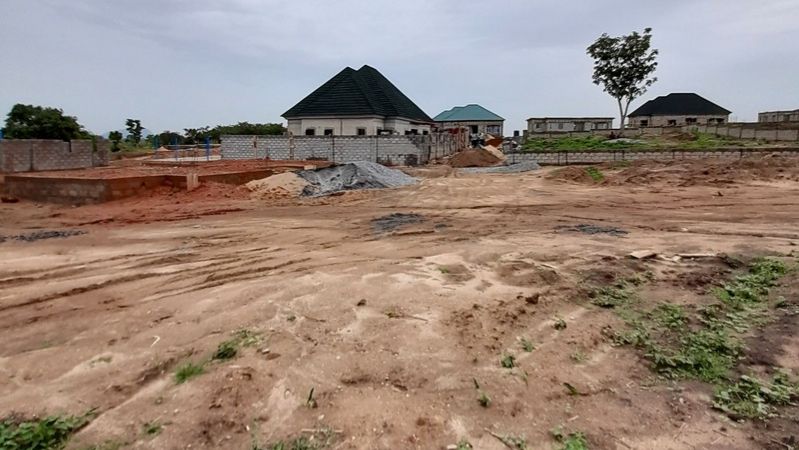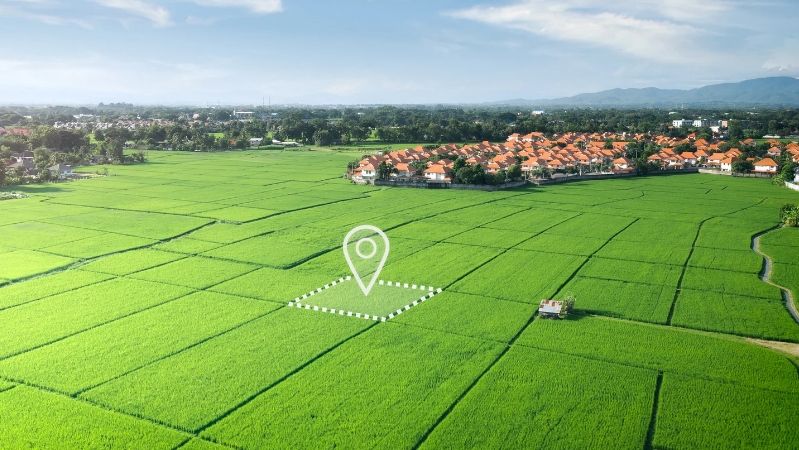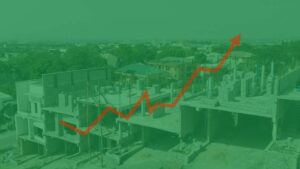Land banking has gained significant attention as an investment strategy in Nigeria, especially for individuals looking to build wealth through real estate.
If you’re considering this path but have questions, you’re not alone.
This article will provide you answers to some frequently asked questions about land banking, helping you make informed decisions.
So, let’s get the conversation started and dissect what this popular topic is really all about…
1. What is Land Banking?
Land banking refers to the practice of buying undeveloped land at a low price and holding onto it until its value increases, often due to urban development or rising demand.
This investment strategy is particularly attractive in growing cities where development is expanding outward.
What this simply means is, you’re investing in the future potential of the land rather than its current usability.
Below is a quote the puts in perspective more reason to invest in Land.
“Don’t wait to buy land. Buy land and wait.” – Will Rogers
2. What is the Concept of Land Banking?
The concept of land banking revolves around foresight and patience. Waiting is one of the important ingredients when it comes to land investment.
Investors focus on areas that show signs of future development, such as new infrastructure, businesses, or residential projects.
These lands are often purchased at a fraction of the price of developed plots, making them an affordable entry point for real estate investment.
For example, areas near the city center that were once considered rural are now thriving due to government and private developments.
3. Is Land Banking a Good Investment in Nigeria?
Land banking is an excellent investment in Nigeria, provided you choose the right location and understand the process.
- High ROI: Land value in Nigeria often doubles or triples in areas experiencing rapid development.
- Low Maintenance: Unlike rental properties, undeveloped land requires little to no maintenance.
However, the key lies in proper research and ensuring the land is free from disputes or encumbrances.
4. How Can I Invest in Land Banking?
Here are the steps to take to start investing:
- Research good Locations: Look for areas with potential for future development.
- Verify Ownership: Check land titles and ownership details to avoid fraudulent purchases.
- Documentation: Ensure the land has proper documentation like the Certificate of Occupancy (C of O).
- Start Small: If you’re new to this, consider starting with smaller plots of land.

5. What Are the Benefits of Land Banking?
This type of investment offers great benefits like high returns as land values increase over time. It’s a solid hedge against inflation, keeping your investment safe.
Also, it’s a passive investment, you don’t need to manage or maintain the land. It’s also perfect for diversifying your investment, spreading out risk for long-term growth.
6. What Documents Do I Need?
To invest in land banking in Nigeria, essential documents include the Certificate of Occupancy (C of O), land sale agreement, deed of assignment, survey plan or technical deeds plan (TDP), and proof of payment.
Verifying the authenticity of these documents ensures a secure investment in undeveloped land.
7. What Is the Profit Potential?
The profit from land banking can be astonishing if you invest wisely. For example, land purchased in Jahi, Abuja for ₦50 million over ten years ago now sells for over ₦250 million due to the ongoing development and road infrastructure.
This underscores the importance of researching and acting early.
8. What Are the Best Nigerian Cities to Invest in Land Banking for Good ROI?
Some cities offer excellent opportunities due to their rapid development:
- Abuja: Areas like Maitama II, Jahi, and Kaura are witnessing significant growth.
- Lagos: Ibeju-Lekki and Epe are hotspots due to ongoing industrial and residential developments.
- Port Harcourt: With expanding oil and gas infrastructure, land value here is rising.
9. Can I Use My Land as Collateral for A Loan in Nigeria?
Yes, this is a common practice. You can use your land as collateral for a loan in Nigeria. Many financial institutions accept land, including undeveloped land, as collateral.
This allows you to secure financing without selling or developing the land. However, the land must have proper documentation, like a Certificate of Occupancy.
10. What Are the Risks of Land Banking?
While land banking is lucrative, it’s not without risks:
- Fraudulent Sellers: Always verify the ownership and authenticity of the land documents.
- Land Disputes: Ensure the land is free from disputes by conducting a thorough background check.
- Delayed Development: The anticipated development might take longer than expected, thereby delaying your ROI.
Conclusion
Land banking is more than just an investment; it’s a long-term strategy to build wealth, protect your finances against inflation, and secure generational assets.
With more areas opening up and increasing demand for land, the opportunities are immense.
For enquiries on how to buy land or invest in land banking in Abuja, contact us.
Read Also: Price Negotiation Tips for Property Purchase in Nigeria




